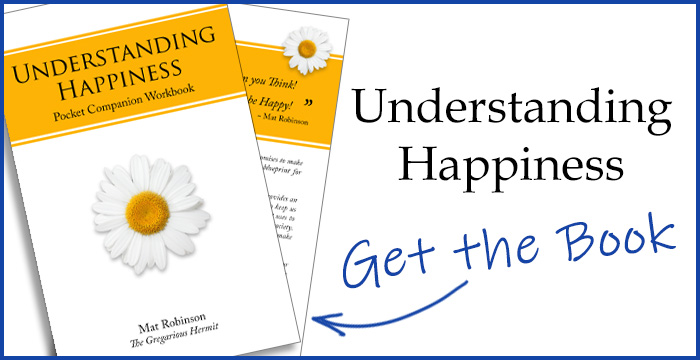It’s a good question right! Irreconcilable Differences cause so much tension between couples, coworkers, colleagues and in other social situations. But should they? When you learn to spot that there is no right or wrong, life becomes so much simpler.
My wife likes chicken, I like fish, which one of us is right?
We should probably argue about that for hours. Getting upset and calling each other nasty names. Acting like we’re superior to each other and that the other person is wrong.
Of course not. That would be silly.
It really is a matter of personal preference. There is no right or wrong answer. I like fish. My wife likes chicken. Enough said.
We could debate the relative health benefits of each type of food. We could argue about the environmental cost. We could ponder the moral line.
But it quite simply doesn’t matter. I like fish. My wife likes chicken.

Doesn’t matter how much we debate, you can’t change somebody’s basic human preferences.
I could have said, “I like Star Trek, my wife likes Star Wars – which one of us is right?” I like peanuts, you like cashew nuts. I like Monet, you like Gauguin. I like Pepsi, you like Coke.
I like red, you like blue.
No amount of debating or arguing is going to convince the other person that what they like is wrong. And yet that’s what we often try to do when other people’s preferences are different from ours.
We fail to see the simplicity of the situation. Our egos get in the way.

A lot of the problems and interpersonal conflicts I see very often fall into that category. A basic personal preference that maybe doesn’t even have any logical thought or reasoning behind it. It just is.
What we need to do is learn to recognize when a conflict is simply a difference of personal preference versus something where there might be a logical ideal. If it’s just a preference, then accept that the other person has a different way of doing something or a different personal favorite.
They’re not an idiot. They’re not stupid. They’re not wrong. They’re just wired differently than you are.
If you can recognize someone else’s preference then there is simply nothing to get upset about. Nothing to argue about.
Think about all the silly things that couples get into fights about. How to stack the dishwasher. How to do laundry. Sleeping with the windows open or closed. How fast we drive. What temperature the thermostat should be set to.

Those are all simple disagreements based solely on personal preference.
What about religion? What about politics? In many cases, those are not conscious decisions that we made. They’re preferences we developed over time based on our past experiences and upbringing.
I love the color red. I’m drawn to reds and oranges so strongly, but I could not offer an explanation as to why.
Maybe when I was a child, I had a red t-shirt or a red toy that I subconsciously associate with a happy time in my life or joyful event. I associate the color red with joy and am simply drawn to it for that reason. Don’t know. Couldn’t say for sure.
We are naturally drawn to objects and experiences that we have previously had a positive encounter with. Those “prejudices” are formed very quickly and can be formed very early in life. Sometimes, just a single exposure to something really exciting can be all it takes to form the subconscious preference.
I prefer not to have a preference
Duality Hermit
This post isn’t meant to show you how to drop your own preferences. We’ll save that for another post, but just being able to identify someone else’s preference is a good first step.

So what now?
You’ve been practicing spotting your own preferences and that of other people. You’ve avoided lots of unnecessary silly arguments. But what now?
Do you just become a sucker and always let the other person get their own way if they have a different way of doing things?
No – of course not.
But now at least you have the choice.
Do you notice how uncomfortable it feels when you’re in a car with someone that drives faster or slower than you do? If they’re driving faster, you are anticipating an accident. If they drive slower, you are feeling a sense of pressure from the people behind you.
How fast or slow you drive is a personal preference.
If they’re driving differently but not dangerously, then just acknowledge that their preference is different from yours and just let it go.
If you feel that their driving style is putting you in danger, then probably best to speak up and say something. Don’t say that their driving is bad, that’s your ego needing to feel superior, but just that it’s making you feel uncomfortable. You usually like to drive………[insert your preferred driving style here].
That way, you’re not telling them they’re wrong. You’re not challenging their ego or their preference. You’re simply stating a fact. And hopefully they’re conscious enough to have a little empathy towards you.
If not, then maybe you shouldn’t be in the car with them.

I feel like I’m rambling on here. But you get the point. Recognize personal preferences. Personal differences. Acknowledge those and let them go. Or if you believe that there could be negative consequences, then take action.
“Accept the things you cannot change. Change the things you can. And have the wisdom to recognize the difference.”
That quote only refers to things that affect you directly, but I would also add in there, “Learn to accept other people’s preferences if they do not adversely affect you. And advocate for yourself if other people’s actions will adversely affect you.”

Have a really great week trying to recognize preferences. And if you choose not to, then I acknowledge and accept your preference to do otherwise.
And to answer the question – which is better, chicken or fish? The correct answer is broccoli of course 🙂
Peace
Mat Robinson
~The Gregarious Hermit
#IrrecincilableDifferences #InnerPeace #UnconditionalLove

Hey – Thanks for Reading
Since Mat’s spontaneous spiritual awakening in 2014, he has made it his mission to help people find true happiness and inner-peace by showing them how their mind makes them unhappy. He also guides people who are on a more adventurous journey towards enlightenment. If you have questions or need help, reach out to Mat directly.
If you enjoyed this article, then check out his new book, “Understanding Happiness ~ Pocket Companion Workbook” available on Amazon for just $7.99. This book was meant to help Mat clarify his thoughts but has now taken on a life of its own.
Don’t defer your happiness to the future when you get a faster car, a bigger house, better job or a perfect partner……be happy now instead.





